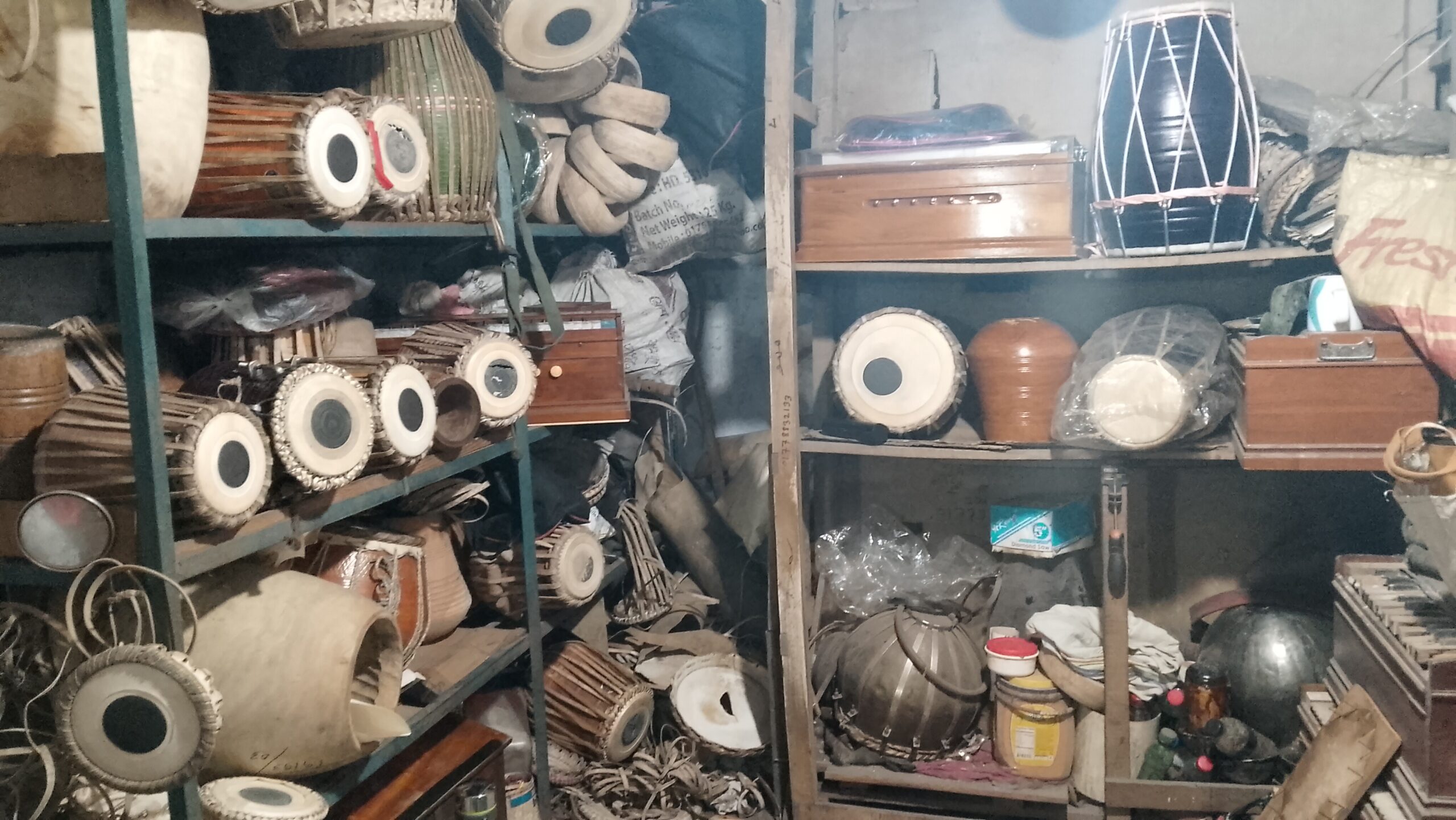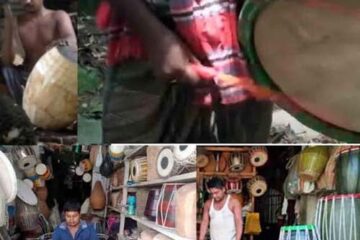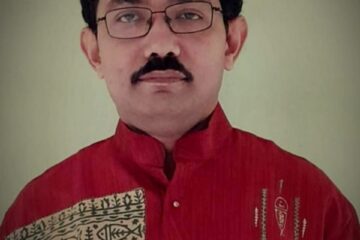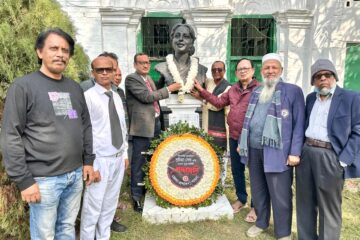PABNA, Sept 09:- With the touch of modernity, various electronic musical instruments, as well as numerous devices and apps, have entered the market. As a result, the use of Dugitbala, Harmonium, and other local and indigenous musical instruments is disappearing with the evolution of time. Musical instruments have been in use since the dawn of human civilization, and their forms have only changed over time. Ancient musical instruments were mainly used in various religious and traditional rituals. Back then, they were used for different occasions. Gradually, culture evolved, and people began using musical instruments for entertainment.
Although harmonium and dugitbala were once used in family rituals, the sound of dugitbala and the melody of the harmonium have gradually faded away since Jatrapala, due to the increase in the price of raw materials, the comparative decrease in sales, and the lack of easy government loans or other facilities. This ancient art is disappearing with the evolution of time.
Many people have changed their professions in pursuit of a better livelihood. Although they were once wealthy, a few people have managed to maintain their ancestral profession despite various obstacles. This art is an integral part of folk culture.
When we spoke with some musical instrument makers in Pabna Municipality, they said that they have maintained their ancestral profession, even though it is challenging; otherwise, they would have transitioned to other professions long ago.
Ramakrishna Monidas, grandson of musical instrument maker Surjit Ravi Das and owner of Sur Tarang, said: “My grandfather Surendra Monidas started making musical instruments in 1973. After he died in 1998, he took his father’s hand and began making tabla, dhol, and drums, continuing the ancestral profession. However, due to the increase in the price of raw materials and the increase in the use of digital devices, there are not many orders coming in, or the finished goods are not being sold, as a result of which it has become difficult for the family and children to earn a living with the income they earn. However, I think that if we get government and private cooperation, we will get the life of this profession back.”
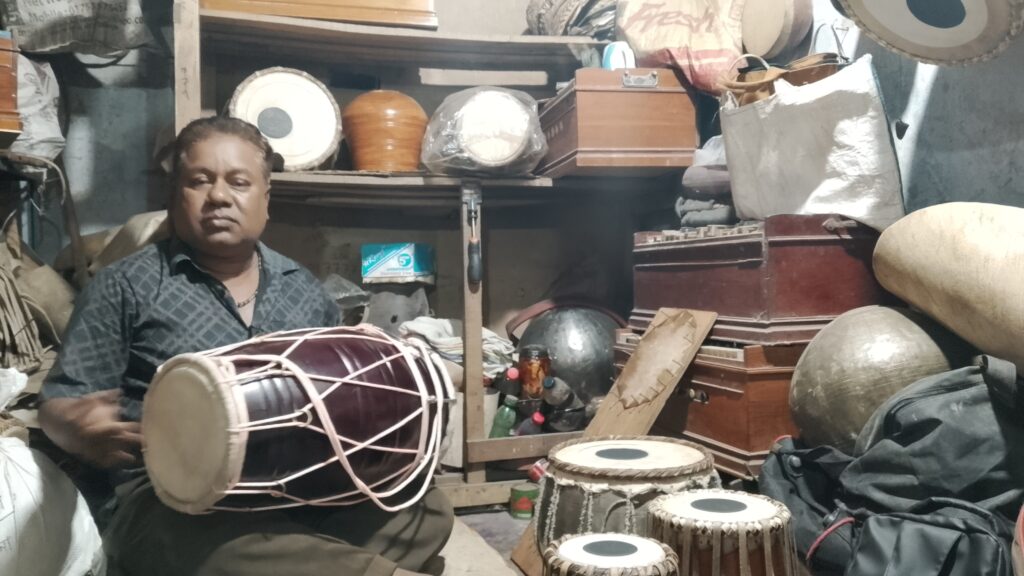
Paritosh Chandra, a resident of Shalgariya in Pabna, said that he has been involved in this profession for 40 years. Currently, due to the advent of mobile phones and all other electronic devices in the market, our business is almost non-existent. However, he is hopeful that if the government takes initiatives to promote cultural development, it will return to its previous form.
Sanjay Kumar Singh, the owner of Surniketan in Pabna city, who has been engaged in harmonium making for many years, said that he has been crafting harmoniums for over 41 years. Still, the business is no longer as lively as it once was. With the influence of modernity, people have moved away from Sanskrit; that is, the trend in culture has changed, and I do not think that the next generation will be able to sustain this profession. However, if we can enhance the development of culture and make it more engaging, I think it will regain its previous form and glory.
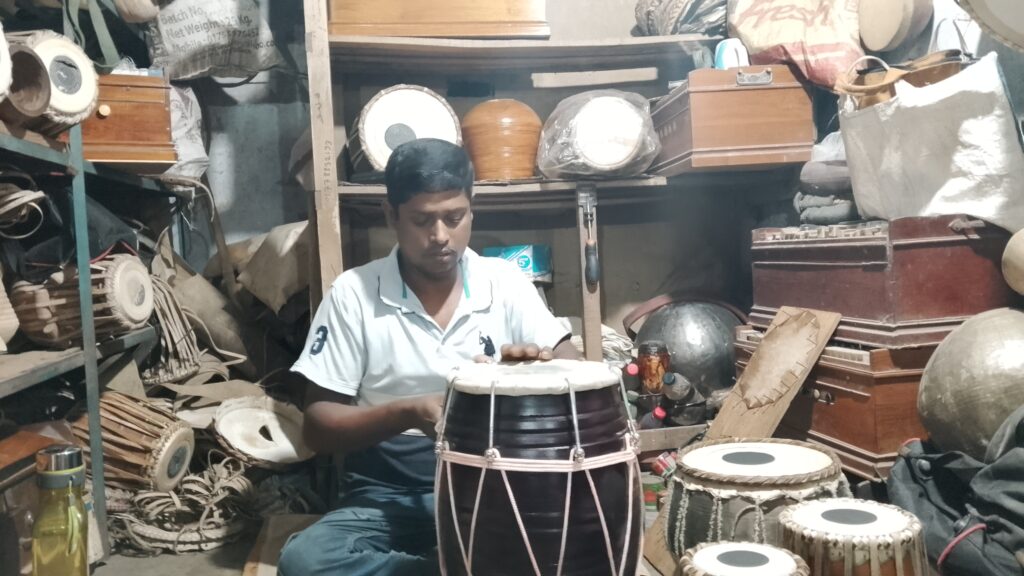
Pabna Deputy Commissioner Mohammad Mofizul Islam, who spoke about various initiatives to preserve culture, said that culture is an integral part of our lives. Culture has contributed to the development of modern civilization since ancient times. Even in the era of digitalization and globalization, we still find life in old musical instruments. To sustain it, we need to create interest in our culture among the new generation, as well as foster an environment of cooperation that meets the needs of those leading this profession. Only then will we be able to maintain the continuity of our tradition.

